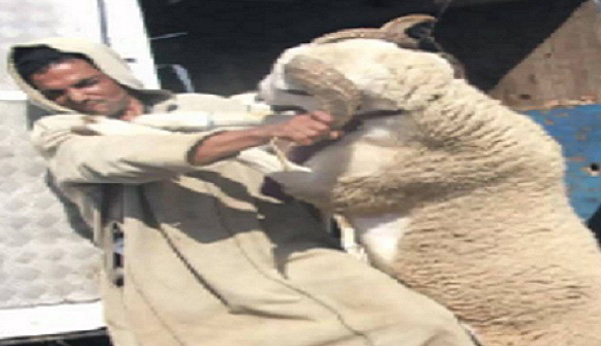
In a recent interview with a sheep importer, a clearer picture emerged of the government’s latest attempt to combat the soaring prices of Eid al-Adha sacrifices.
Fears have been growing over the potential cost increase for sacrifices and the observance of this year’s Eid al-Adha has sparked controversy across the Moroccan political landscape. Some members of parliament (MPs) have voiced criticism against the government’s decision, while others called for the cancellation of the sacrifice practice altogether this year.
The government took a range of measures aimed at stabilizing prices and ensuring a satisfactory Eid al-Adha.
The primary strategy involves encouraging importers to import, for the first time in the country’s history, sheep from abroad, thus supplementing the local market to drive prices down. These measures also include exempting importers from duties and value-added tax and providing a financial subsidy of 500 dirhams for each head of livestock imported.
The Rabat-based importer we spoke with revealed that these governmental measures are set to make a considerable difference this year.
“With the expected influx of imported sheep, prices will become affordable for everyone. We estimate the selling price for imported sheep to not exceed 55 dirhams per kilogram,” he explained.
“Without government intervention, meat prices could have soared to 150 dirhams per kilogram. This year has been a challenging one for the agricultural sector,” he stressed.
He provided more specific details about the imported sheep’s pricing: “The sheep imported from Spain cost us between 50 and 52 dirhams per kilogram. With the support from the government, we plan to market them at 55 dirhams per kilogram, meaning the price of a sacrifice could range between 1800 and 3000 dirhams, depending on quality and weight.”
“Of course, there are many breeds, each comes with its unique features, and their prices vary. They all, however, maintain high quality. For example, the price for the purebred Tamahdit ranges between 2000 and 3000 dirhams, the Sardi between 2800 and 7000 dirhams, and the Spanish will start from 1500 dirhams, depending on size.”
Despite the criticism and the controversy, it appears at first that the government’s strategy might have succeeded, but only time will tell.


